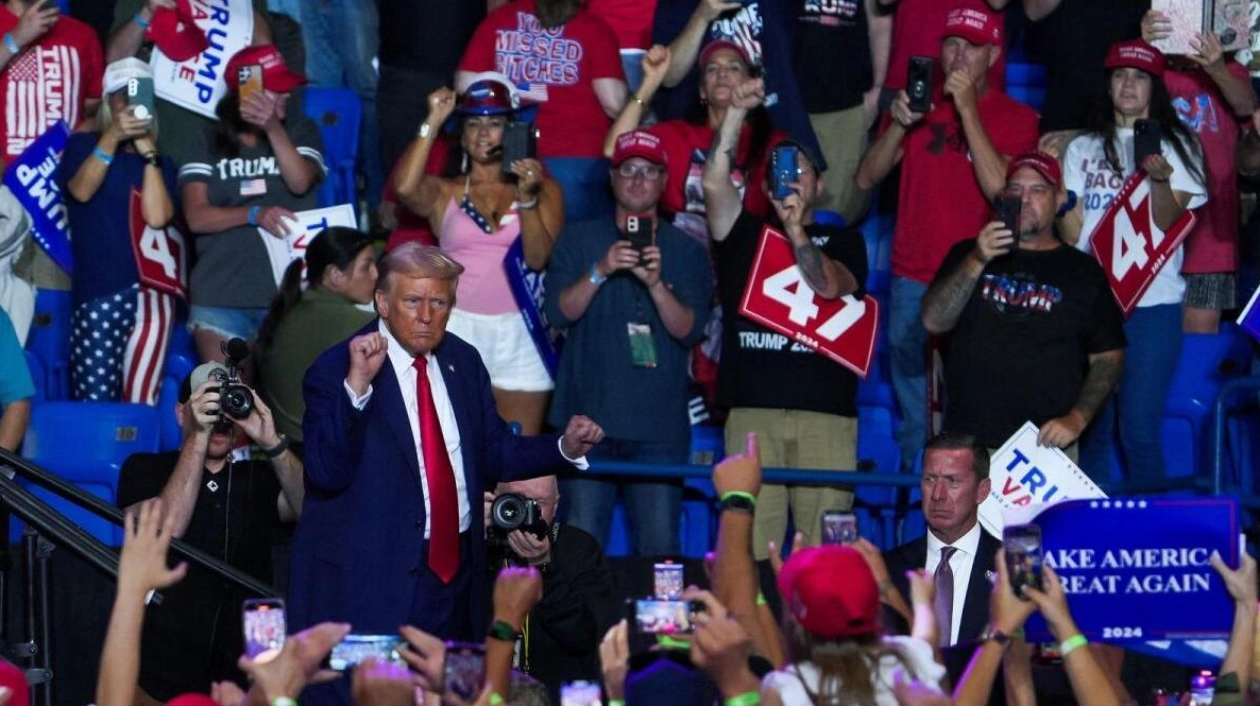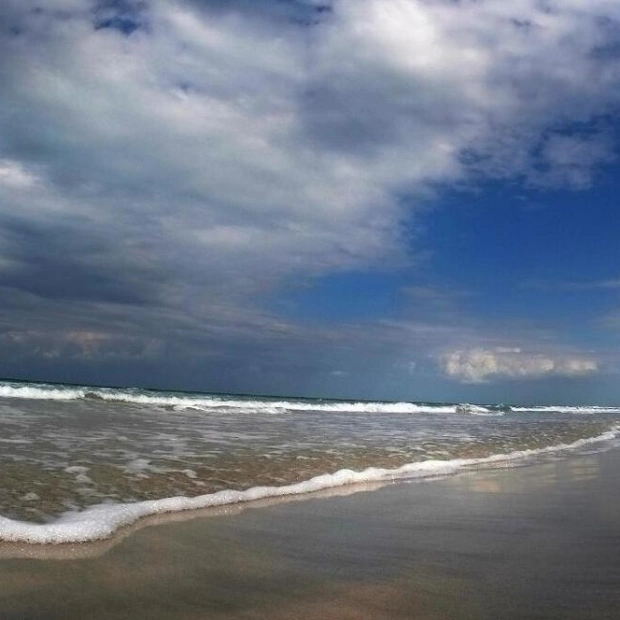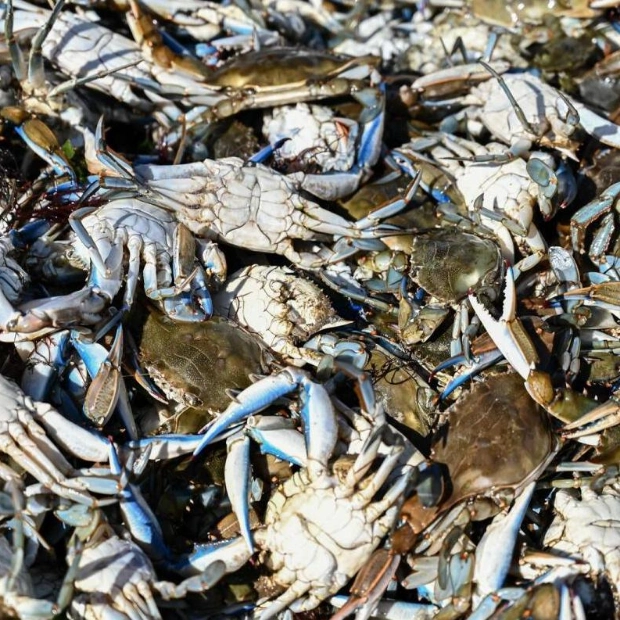A fiercely contentious US presidential contest, characterized by harsh exchanges, negative ads, and limited campaigning, has so far provided little room for discourse on climate change, despite the planet grappling with record-breaking temperatures and catastrophes. However, with Donald Trump now confronting Kamala Harris instead of Joe Biden, the Republican has employed recent gatherings to propagate falsehoods and memes on X, such as fictitious prohibitions on red meat and gas stoves. The objective? To discredit Harris. "Kamala advocated for reducing red meat intake to combat climate change," Trump declared at a July 27 event in Minnesota. The former president further claimed, echoing "depopulation" conspiracy theories that have haunted Harris since she addressed "climate anxiety" among the youth at a White House briefing last year, that the Democratic nominee would "eliminate all cows... and presumably, at some juncture, target humans."
J.D. Vance, Trump's vice-presidential pick, echoed these assertions in an August 3 address in Atlanta, stating that Harris "intends to confiscate your gas stoves, and even your capacity to consume red meat." Such climate falsehoods gained momentum on X, fueled by conservative pundits in key states and MAGA profiles with vast followings. Yet, Harris never made such a pledge. She has used a gas stove herself and mentioned in a 2019 environmental forum that she "occasionally enjoys cheeseburgers," although she has endorsed revising dietary recommendations.
A classic political strategy is to distort your rival's views to render them extreme and unpalatable. Trump and Vance are precisely employing this tactic with Vice-President Harris's climate policies, according to Edward Maibach, head of George Mason University's Center for Climate Change Communication. These misleading narratives compound Trump and Vance's critique of Harris's positions on matters like fracking, a highly disruptive method of underground oil and gas extraction. Harris initially supported banning the practice in 2019 but has since evaded questions on it, especially in pivotal swing states like Pennsylvania where fracking is a major industry.
Nonetheless, climate advocates have generally applauded Harris, whose environmental positions have traditionally been more progressive than the president's—particularly in her pursuit of oil companies as California's attorney-general. The Biden administration also advanced a renewable energy transition by enacting the Inflation Reduction Act, the most significant investment in carbon pollution reduction in US history. Trump has fiercely resisted this legislation, championing a fossil fuel-centric approach with the rallying cry "drill, baby, drill."
The League of Conservation Voters, an environmental advocacy organization, described the Trump campaign's propagation of misinformation about "widespread bans" as "absurd scare tactics" designed to undermine recent "climate advancements." In response to inquiries from AFP, Harris's spokesperson Lauren Hitt did not directly address specific accusations from Trump and his running mate but stated that the Democrat "is committed to a future where all Americans enjoy clean air, clean water, and affordable, reliable energy." Meanwhile, Trump has persistently downplayed the dangers of climate change.
"The primary threat is not global warming, with the ocean expected to rise by one-eighth of an inch over the next 400 years," he told Elon Musk on X in mid-August. Musk formally endorsed Trump in July. Over a third of registered voters, according to a recent Yale Program on Climate Change Communication survey, consider global warming a critical factor in their 2024 election vote.
"I anticipate this tactic will rebound negatively among a relatively smaller group of undecided voters, the majority of whom are concerned about climate change," Maibach commented. "Trump and Vance's attacks on Vice-President Harris's climate stances will likely harm them more than benefit them."






